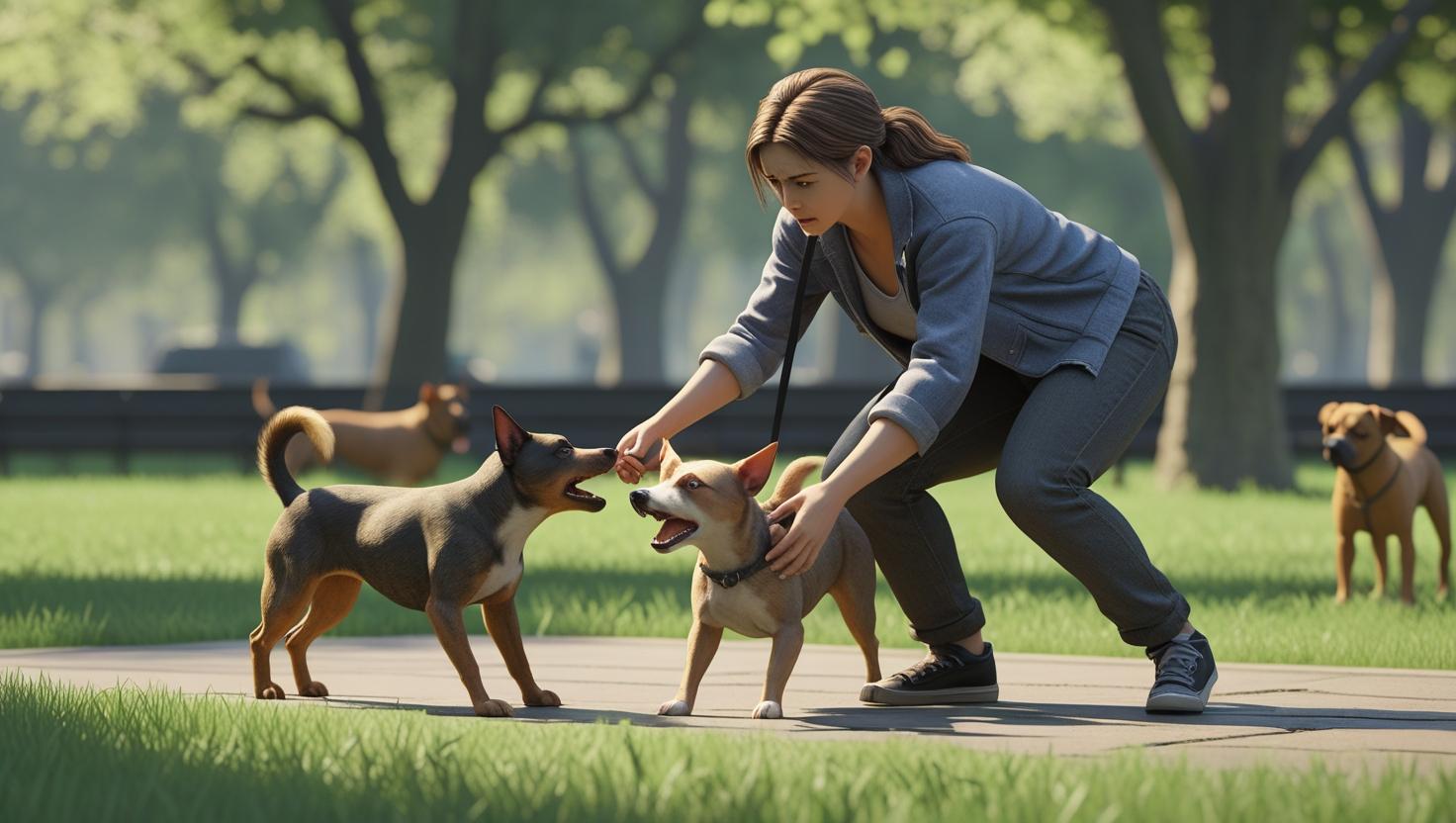Understanding Canine Reactivity: How to Manage Your Dog’s Over-Reactive Behaviour
Dog reactivity can be one of the most challenging behavioural issues to manage as a dog owner, especially when you’re living in a bustling city like Manchester. Whether your dog barks, lunges, or becomes overly excited around other dogs, people, or certain noises, these reactions can lead to frustration and anxiety for both you and your dog. But with the right approach, reactivity can be managed, and your dog can learn how to respond more calmly to triggers.
At Paws ‘n’ Heal, based in Manchester, we specialise in helping dogs overcome reactivity with positive reinforcement techniques. As a trusted dog reactivity trainer in Manchester, we understand that every dog is unique, and we tailor our training to meet the specific needs of you and your dog.
What is Dog Reactivity?
Dog reactivity refers to exaggerated, impulsive responses to stimuli in the environment. This could mean barking, lunging, or showing signs of aggression when a dog encounters something they perceive as a threat or something that overwhelms them. While reactivity is often linked to fear or anxiety, it can also be caused by frustration or excitement.
Common Triggers for Dog Reactivity:
-
Other Dogs: Reactivity towards other dogs is a very common issue, particularly when dogs are on a leash and cannot freely interact.
-
People: Some dogs may react aggressively or nervously to unfamiliar people or strangers.
-
Fast Movements or Noises: A dog may react to fast-moving objects or sudden loud sounds, such as traffic, bicycles, or children running.
-
Leash Reactivity: A dog that feels restrained on the leash might react out of frustration, especially when they cannot approach a trigger or move freely.
Why Does My Dog Become Reactive?
Several factors can contribute to why a dog develops reactive behaviours. However, understanding these causes is key to addressing them effectively:
-
Fear and Anxiety: Many reactive dogs are simply scared of certain triggers. Whether it’s due to limited socialisation, past traumatic experiences, or genetics, a fearful dog will often react aggressively as a form of self-protection.
-
Frustration: If a dog wants to interact with another dog or person but is restrained by the leash or an obstacle, they might react out of frustration.
-
Lack of Socialisation: Dogs that haven’t been properly socialised during their critical developmental period may struggle to deal with new experiences, people, or other dogs.
-
Overstimulation: Some dogs are naturally more excitable and may react impulsively when they are over-stimulated or not mentally or physically tired.
How a Dog Reactivity Trainer in Manchester Can Help
If you’re facing issues with a reactive dog, a professional dog reactivity trainer in Manchester. We can provide you with the guidance and support you need. At Paws ‘n’ Heal, we focus on training techniques that are based on positive reinforcement. They are designed to reduce anxiety and encourage calm behaviour. Here are some of the key methods we use:
-
Positive Reinforcement Training: We use rewards-based methods to reinforce calm, desired behaviours. Furthermore, by focusing on positive experiences and rewarding your dog when they remain calm around triggers. We can help them change their reaction patterns.
-
Desensitisation and Counter-Conditioning: This involves gradually exposing your dog to their triggers in a controlled, manageable way. By pairing the trigger with something positive (like treats or toys), your dog will start associating the trigger with something enjoyable, which helps reduce reactivity.
-
Focus and Impulse Control Exercises: We teach your dog basic commands like “Look at Me” or “Leave It” to build their focus and impulse control. These skills help your dog remain calm in stressful situations and allow you to redirect their attention away from triggers.
-
Socialisation Sessions: If your dog is reactive towards other dogs or people, we can provide carefully supervised socialisation opportunities to help your dog build confidence and learn proper social behaviour.
-
Calm Leadership and Guidance: Dogs look to their owners for cues. We guide you in how to maintain a calm, confident presence to help your dog feel secure. When you remain calm during reactive situations, your dog will learn to follow your lead.
Why Choose Paws ‘n’ Heal as Your Dog Reactivity Trainer in Manchester?
At Paws ‘n’ Heal, we understand the challenges that come with dog reactivity, and we’re here to help. We are a trusted dog reactivity trainer in Manchester. Additionally, we offer personalised training that fits the needs of your dog and your lifestyle. Here’s why you should choose us:
-
Experienced Trainers: Our trainers are fully qualified and experienced in handling reactive dogs. We’ve helped many clients in Manchester overcome reactivity issues and develop well-behaved dogs.
-
Positive, Compassionate Methods: We use only kind, effective training methods that are based on positive reinforcement. We believe that training should be a fun and rewarding experience for both you and your dog.
-
Tailored Training Plans: Every dog is different, and we create training plans that are specific to your dog’s individual needs and triggers.
-
Convenient Location: Located in Manchester, we offer in-person training sessions that are convenient and accessible for local dog owners.
Final Thoughts
If you’re struggling with a reactive dog, you don’t have to face the challenge alone. A qualified dog reactivity trainer in Manchester can help you understand your dog’s behaviour. Furthermore, we will guide you through a training plan to address their reactivity. At Paws ‘n’ Heal, we’re passionate about helping dogs and owners build strong, positive relationships.
Contact us today to schedule a consultation and start your journey towards a calmer, more confident dog.


